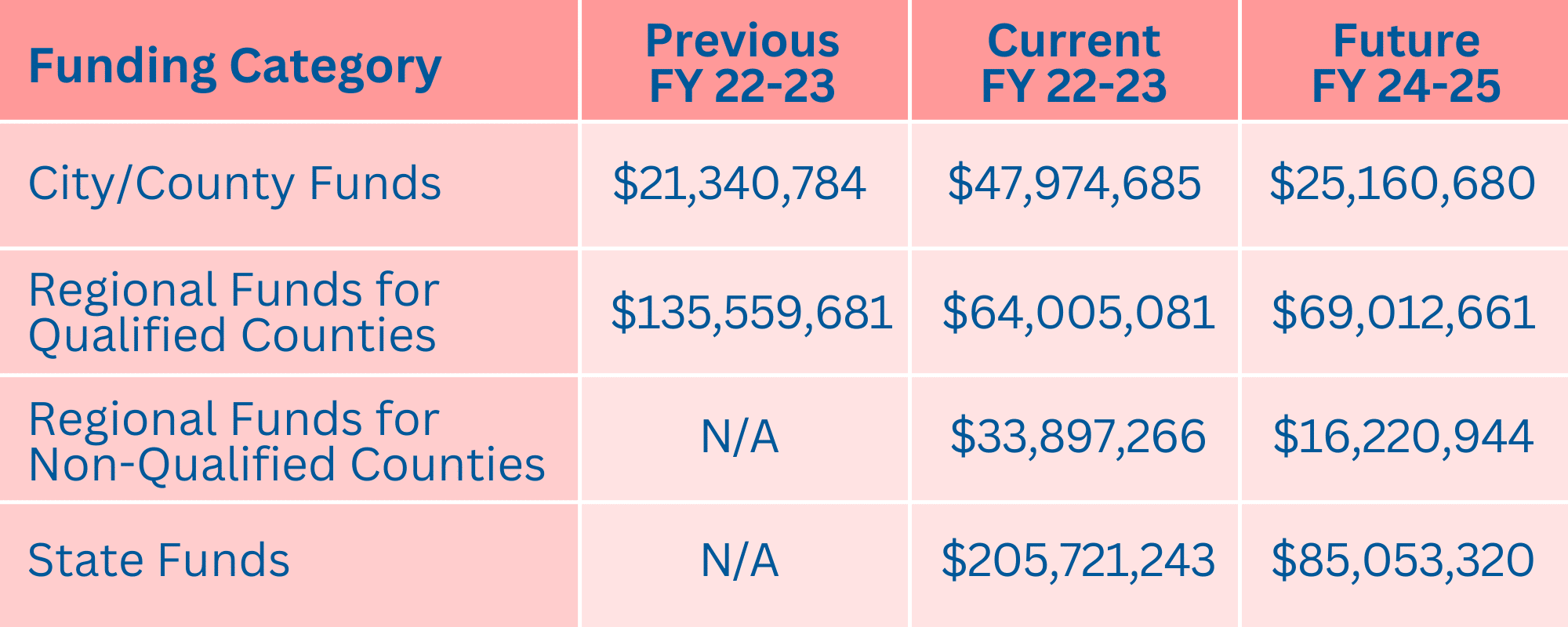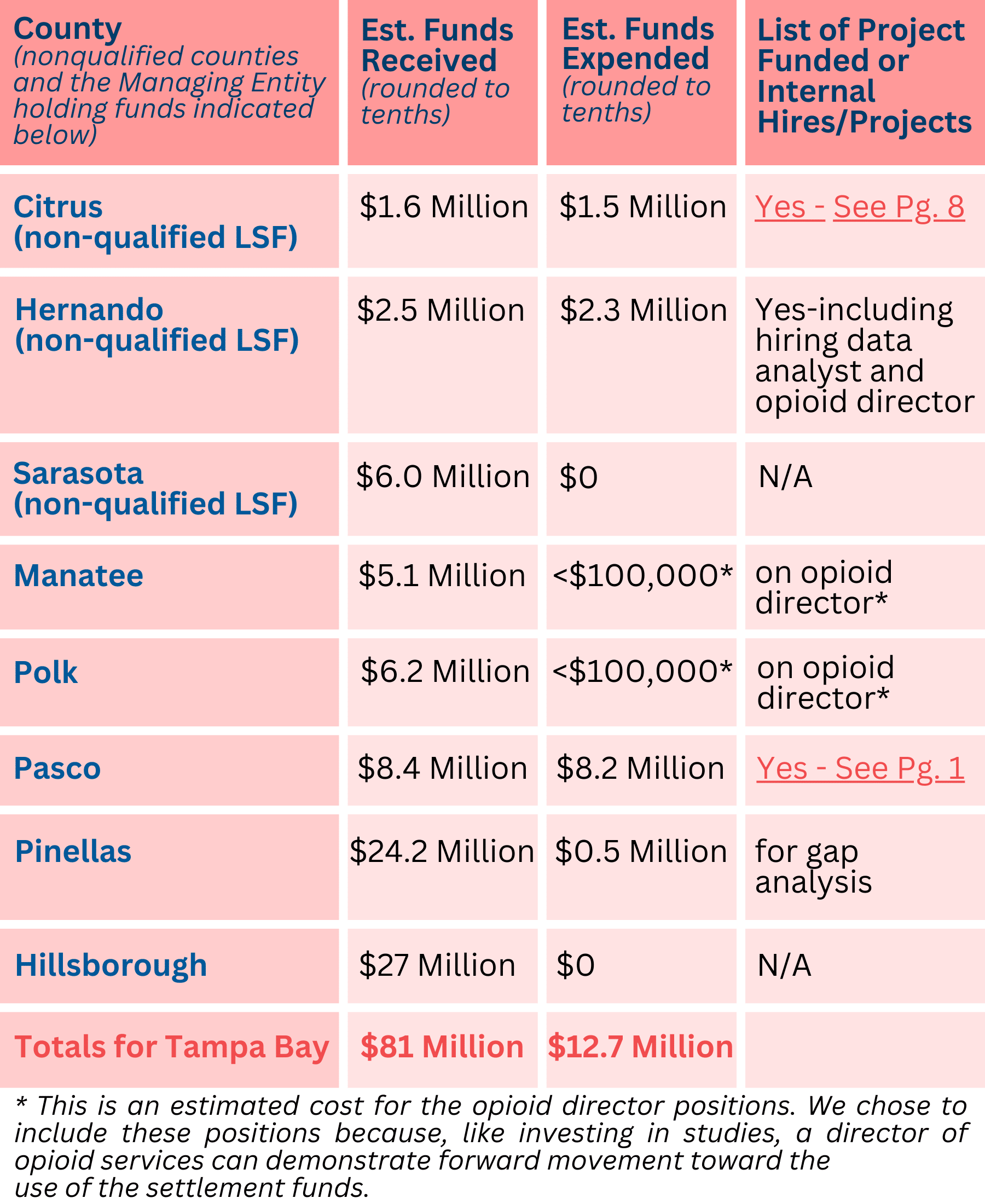We have recently received questions about requirements for opioid settlement funds that Florida has received.

The Purdue bankruptcy claim was filed so early that the Purdue portion of the opioid settlement funds was never included in the disbursement.

The Summary Judgement was clear on this point — settlement funds should not supplant any government’s general revenue appropriated to substance abuse and mental illness (SAMI) programming. While the Summary Judgement was clear, it is quite easy to justify moving an expense from general revenue/general contracting dollars to opioid settlement funds…especially during times of budgetary shortfalls. This is as true for the state funds as it is for county and city funds.

Distributions by the state legislature and programs initiated by the Department of Children and Family utilize state funds, which are overseen by the Statewide Council on Opioid Abatement. Cities and counties have funds that they can distribute directly. Some counties roll these smaller pots of money into the same process that they utilize for the County Regional Funds. These regional funds have county-level Opioid Abatement Boards and opioid abatement plans that direct spending.

Last year, the state distributed the opioid settlement funds to the counties (for those that qualified) and to the Managing Entities (for those counties that are considered “nonqualified”). Of the $81 million received by (or on behalf of) counties for use on opioid overdose abatement projects, only $12.7 million of the funds have been allocated back into the communities for programs to reduce the likelihood of overdose deaths.
Most counties are either still in their initial planning stages or in round two of their distributions – which means this is a great time to have your voice heard. Most counties that have yet to distribute funds are seeking to align their grant-cycle with their fiscal years. For Hillsborough County, this means that projects will be decided, and money will be disbursed by October 2024. For Polk County, this means that the call for projects will begin in October, with money being allocated for successful projects early in 2025. Be sure to check your county’s website for more information.
In the meantime, here are the top ways to get involved in the county disbursements throughout the Tampa Bay region:
- Pinellas County: Ernst and Young are busy completing their gap analysis. They want to hear from our employers and our stakeholders. The result of this research will be shared at the end of August.
Employer Survey
- Link: https://survey.eu.qualtrics.com/jfe/form/SV_5pDYB4l2aihSGWi
- Intent: To understand the supports in place for employees struggling with drug addiction and to organize perspectives into gaps and opportunities
- Audience: Employer groups
- Timeline: We’re hoping to get responses back by July 24th
Constituent Survey
- Link: com/PCEpidemicSurvey
- Intent: To understand constituent awareness of services and specific programs in Pinellas and to gather input on areas of need
- Audience: Residents of Pinellas + those who have visited Pinellas in the past year
- Timeline: Open through the end of July
- Pasco County’s next Opioid Taskforce Meeting is on July 22. And, Hillsborough County Commissioner Myer presents the opioid abatement process to the County Commission on July 17. Each of these meetings has an opportunity for the public to speak.
- On July 9th the Citrus County Board of County Commissioners authorized the Citrus County Opioid Task Force to review and recommend projects for funding through the Opioid Settlement Funds. Todd Hockert is asking anyone interested in being added to the review work group to email him at todd.hockert@flhealth.gov.
Next quarter, our coverage of the opioid settlement dollars will dive deeper into who has seats on these decision-making bodies (and who does not) and where is the recovery-oriented system of care are the funds being allocated. We will also look at transparency in spending, using North Carolina as the gold standard.

